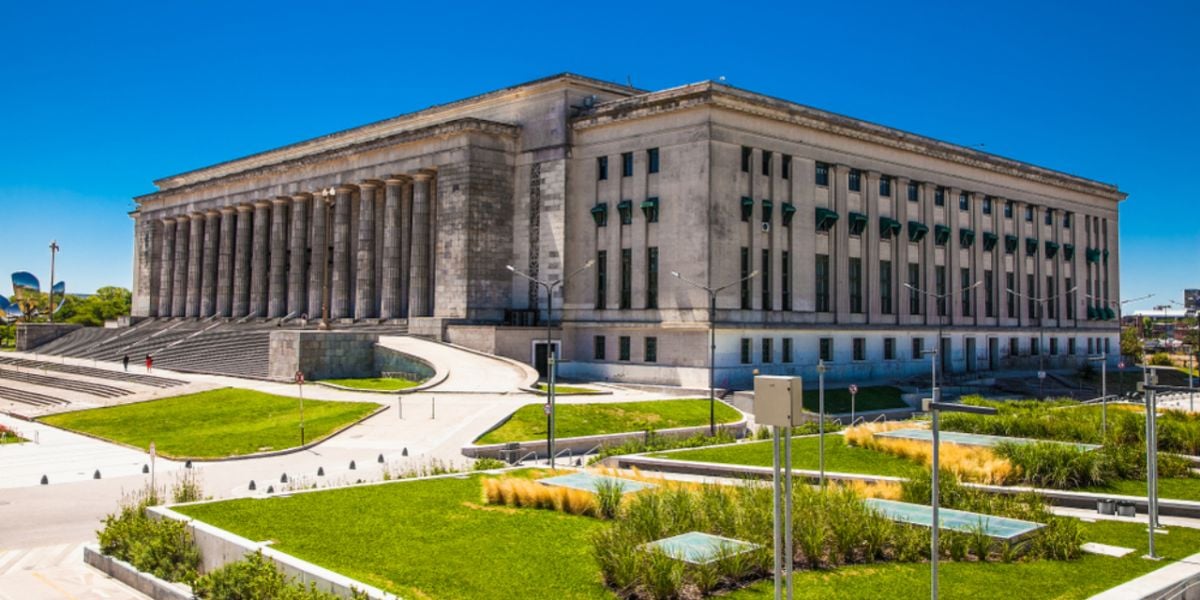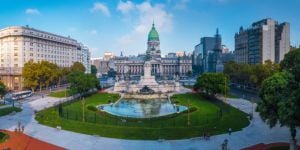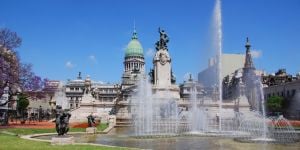
A vibrant city with much to offer, studying in Buenos Aires has a lot to offer for expats. With eight-world-class universities, Argentina offers plenty of chances for anyone interested in studying overseas.
Around 90,000 students, from all over the globe, study in Argentina. That's higher than any other country in South America. Of those, about 4,700 are Americans
Argentina is not only a safe and friendly choice to study abroad, but it is very affordable when compared to European or US cities.
The cost of studying in Buenos Aires
Public universities are tuition-free, as are undergraduate programs and some graduate-level courses. But to attend private universities, students can expect to pay between USD 5,000 on the low end and up to USD15,500, or higher, per year to earn an undergraduate degree.
With more than forty national universities, all receiving government funding, as well as programs which cater to undergraduate students, there is no reason that anyone who wants a higher education can't get one. Add to the list the 45-or-so private universities and schools in Argentina, which are often smaller and charge higher fees.
The teaching language and culture in Buenos Aires
Most universities use Spanish as the primary teaching language, and as of 2019, none of the major universities has classes in English.
Classes have between 20 and 60 students, depending on the school. Expats won't have much interaction with students unless you're invited to a student gathering to study on campus or public libraries.
The most prominent universities in Buenos Aires
Universities in Buenos Aires come in two types: public and private.
Public universities are funded by the government and are free. Private schools are managed by religious organisations and finance their work by way of tuition.
Universidad de Buenos Aires
Universidad de Buenos Aires, or UBA, is the largest in Argentina. Established in 1821, the school has 13 campuses, six hospitals, 10 museums and three high schools.
The school's hallmark is its academic excellence, and three Nobel prize winners have attended UBA:
Dr Bernardo Houssay and Dr Federico Leloir shared the 1970 Nobel prize in chemistry while Caesar Milstein was awarded the 1984 Medicine Nobel prize.
Although not a Nobel prize winner, heart surgeon René Gerónimo Favaloro, who performed the first documented coronary bypass operation and was the first to successfully perform a heart transplant in Argentina, also attended UBA.
Without a central campus, UBA is home to about 30,000 students, with 27% arriving from overseas.
Universidad Pontificia Universidad Católica Argentina Santa María de los Buenos Aires (UCA)
More simply, Universidad Católica Argentina, UCA, comes in at 364th position in the world's rankings. Founded in 1958, the school is a private, Catholic university. The Archbishop of Buenos Aires is also the chancellor.
With the main campus in Puerto Madero, the “Manhattan of Argentina,” UCA provides for a range of courses from music to law.
International students must prove that they have excellent Spanish proficiency.
Enrolling in universities in Buenos Aires
Most schools in Buenos Aires welcome international students, but there is a specific application process for expats.
In general, international students have to provide:
- Transcripts of academic records
- Certificate of proficiency in Spanish,
- Letters of recommendations, and
- An essay summarising their reason for an interest in attending the school of their choice
For expats, health insurance is required, as is a student visa.
Application fees for universities in Buenos Aires
Compared to many North American and European cities, Buenos Aires is not expensive. Expats usually will not have to pay tuition at public universities, unless an advanced course in Spanis is required. Other than the cost of school supplies and textbooks, an expat doesn't have to pay anything else.
At Universidad de Belgrano, a private school, tuition can run as much as US$500 a month plus an annual application fee.
Scholarships are available but usually reserved for Argentine citizens.
Student visa in Argentina
Different student visa requirements were established in 2006, and these depend on the student's nationality, the intended duration of stay and the course of study.
The following documents have to be provided to the Office of Migration:
- Passport
- A non-criminal record or police clearance, and
- Registration documents
- Student housing in Buenos Aires
Students who need housing can find every kind of accommodation imaginable. The cost is all over the map, but finding one within a tight budget is possible. Prices for foreigners are in dollars, and a deposit of several months rent is required. Find out more in our articles about student life and renting options in Buenos Aires.
We do our best to provide accurate and up to date information. However, if you have noticed any inaccuracies in this article, please let us know in the comments section below.








